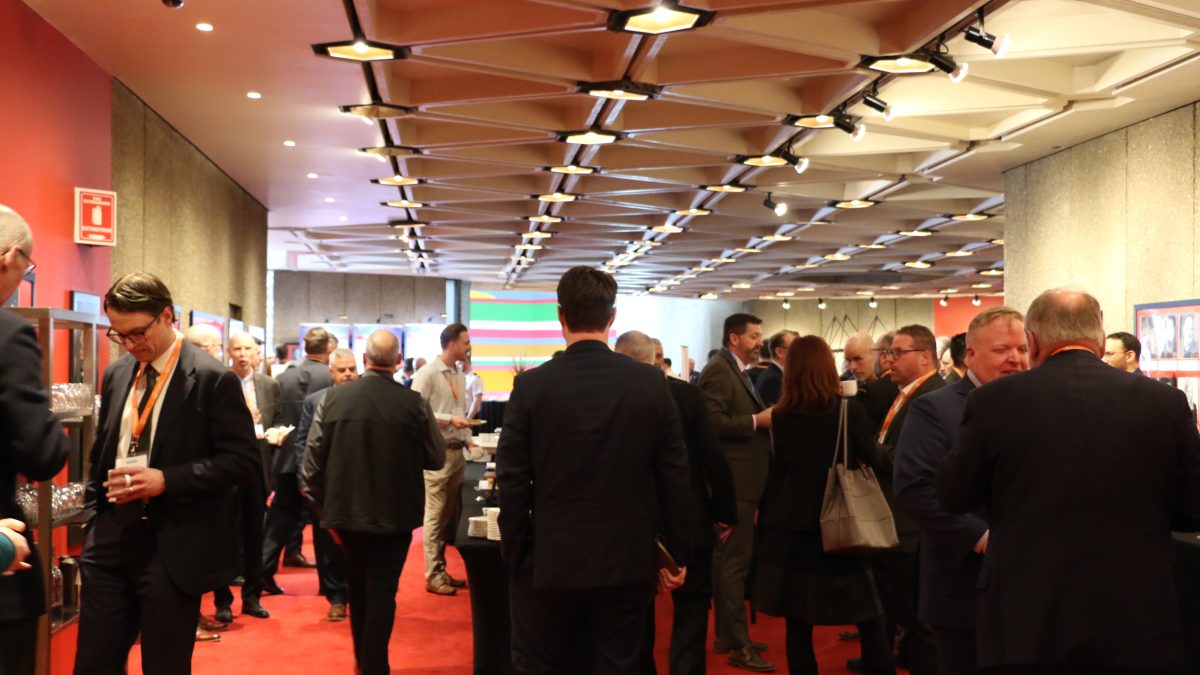On 25 February 2025, Vanguard’s 12th annual maritime forum, ShipTech 2025, was held in Ottawa, with a theme of “The future of maintenance and capability sustainment”. As with ShipTech 2024, the day-long conference was hosted in person, while simultaneously streaming virtually. Over 280 attended in person, and 70 virtually, spanning both government and industry, resulting in dynamic interaction which was only limited by the time available.
The conference was opened with a keynote speech by Rob Gray, the Director-General Major Project Delivery (Sea) where he reviewed 15 years of the National Shipbuilding Strategy (NSS) and the accomplishments to date. He then discussed In Service Support and the critical need for industry input as they move towards a Continuous Capability Sustainment (CCS) model for maintenance. He was then followed by a panel discussion on horizontal tech insertion and service life extension of legacy systems in the Royal Canadian Navy (RCN) and Canadian Coast Guard (CCG), moderated by Cmdre Keith Coffen, DND Director-General Maritime Equipment Program Management. The panel, representing serving senior naval and Coast Guard technical officers, as well as a classification society (ABS) discussed growing refit lengths and the associated costs, obsolescence management of legacy systems and the importance of ensuring reliability. The final thoughts were summarized by the need to maintain legacy fleets “faster, better and cheaper”. Needless to say, all panellists were most interested in innovative industry solutions to reduce time and costs.
The morning then proceeded with technical showcase by Automatic Coating Limited on corrosion resistant coatings and their application in the marine industry, specifically warships, followed by J-Squared on growing the Canadian supply chain in response to CAF recapitalization and sustainment. Following a networking break, the second panel discussion of the day on the future of ship maintenance was moderated by Jay Harwood, the DND Deputy Project Manager River-Class Destroyer Project. The panel representing DND, CCG, PSPC and industry (GasTOPS) discussed the reliance on industry, as there is insufficient capacity in existing government maintenance facilities (e.g. Fleet Maintenance Facilities), as well as a better planning of work that goes out to government tender, while living within fixed budgets. GasTOPS suggested that advancements in technology, as a result of improved computing power, offered solutions to the challenges of moving from old to new maintenance plans. However, to succeed, industry needs to understand the problems and be a part of the team.
Following a luncheon break, the afternoon continued with a third panel discussion moderated by Karen Watson, the DND Deputy Director Program Management Support Office. The panel started with Ms. Watson presenting a succinct explanation of of the CCS initiative, of conducting low-risk frequent technical insertions, to avoid the time necessary for minor upgrades while simultaneously responding to ongoing regulatory change. The current system is based on specific capabilities and tends to defer upgrades to large mid-life refits. With CCS the contrast will be to achieve continued fitness for purpose and compliance, whilst maintaining interoperability with Allies and legislation in the form of regulatory change. The panel representing PSPC, DND and industry (Thales Canada) then discussed how delay in the current system was the major reason for cost increase. Industry supported this with the question of the risk of not delivering on time – hence the need for rapid capability insertion. PSPC highlighted the need for agile procurement (are we agile enough?) which is complicated, if industry does not know how to do business with government. All of this underscored the need for adequate and sustainable funding.
The final event of the forum was a “fireside chat” with Rear-Admiral Steve McCarthy, Director Ships Operations and Capability Integration – UK Defence Equipment and Support, Richard Gravel, Director Business Development (Naval Programs) Thales Canada and David St. Cyr, Director of Surface Vessel Program, Seaspan on how the maritime industry deals with insertion of updated capabilities for rapidly evolving technology. The chat, conducted virtually, discussed some of the inherent realities, including deconfliction in plans and scheduling when facing last-minute adjustments. They noted that in ships and submarines, only so many people can be on the job at any one time. Moreover, reducing the time in dry dock has a dramatic impact on costs, therefore, the ability to conduct the technical insertion without docking is critical. The major point with rapidly evolving technology is the ability to upgrade on the go – the new adage is “you will win the war by upgrades, not with what you started with.” Recent events in the Red Sea emphasize the necessity to upgrade, particularly software, as the conflict goes on. But these upgrades must be tested and fit for purpose, thus the need for dedicated land-based test facilities, similar to that which is being built as part of the River-class Destroyer project. Finally, the overriding takeaway is the need to avoid the boom-or-bust cycle of the past as our fleets are reaching obsolescence/end of life at the same time.
Summary
A full and productive session, ShipTech 2025, was eloquently managed by the Master of Ceremonies, Greg MacNeil, Principal at NorthStar Public Affairs, who neatly summed the day with the need for Canada’s marine industry to continue with the work of the National Shipbuilding Strategy that is now showing results and to avoid future legacy obsolescence issues by maintaining a continuous build cycle.

